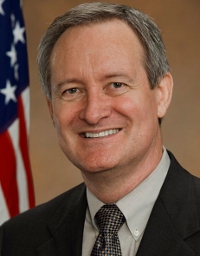Rebuilding lives while strenghtening communities
 A
basic question about the juvenile justice system
has been how much weight to place on
rehabilitation versus holding juveniles
accountable for their actions. Perhaps, there is
no real division between rehabilitation and
accountability. Juvenile offenders can take
personal responsibility for their actions by
complying with their penalties and turning their
lives around. Idaho’s juvenile justice system is
successfully working with offenders to help them
rehabilitate and change their lives, a benefit
to Idaho families and communities.
A
basic question about the juvenile justice system
has been how much weight to place on
rehabilitation versus holding juveniles
accountable for their actions. Perhaps, there is
no real division between rehabilitation and
accountability. Juvenile offenders can take
personal responsibility for their actions by
complying with their penalties and turning their
lives around. Idaho’s juvenile justice system is
successfully working with offenders to help them
rehabilitate and change their lives, a benefit
to Idaho families and communities.More than 100 years ago, the first juvenile court was established in the United States. The Congressional Research Service (CRS) indicates that the “key elements of the juvenile justice system as it was originally conceived were the welfare of the child and the concept that delinquent children could be transformed into productive citizens through treatment.” With some influence from the federal government, states and local governments have primarily managed juvenile justice that in recent years has trended toward increased emphasis on sanctions. However, according to CRS, to some extent, there is an arbitrary distinction between rehabilitating juveniles and holding them accountable for their actions, as the system includes both rehabilitative and accountability based programs.
Created 105 years ago, Idaho’s juvenile justice system was established on the assertion that rectifying the causes of criminal behavior through education, health and mental health treatment, vocational direction and other pro-social interventions will improve community safety and reduce future criminal offenses. After assessment of how to improve the efficiency and effectiveness of Idaho’s juvenile justice system, in 1995, the Idaho legislature created the Idaho Department of Juvenile Corrections. The purposes of the system are “to improve balanced attention to the protection of the community, the imposition of accountability for offenses committed and development of competencies to enable juvenile offenders to become responsible and productive members of the community.”
So often, the crimes capture attention while the significant progress and restoration of those who turn away from crime go unnoticed. According to the Idaho Department of Juvenile Corrections, of the approximately 5,500 juveniles on probation a year in Idaho, 95 percent remain in their home communities, in county programs and under county supervision, and the vast majority of these youth go on to become productive Idaho citizens. The Coalition for Juvenile Justice (CJJ) recognizes young adults who have made great strides after involvement with the juvenile justice system to overcome personal obstacles and make significant contributions to society. Andrew Peterman, who is graduating from Boise State University this year with a degree in Psychology, received CJJ’s 2011 Spirit of Youth Award for his personal triumphs, professional achievements and extraordinary service to others. Andrew plans to pursue a graduate degree in social work.
Our future is subject to the objectives of our children, and we benefit from next generations who focus on encouraging each other and building up our communities, while not choosing to cause trouble and hurt others. We can show all of our nation’s youth a better way and how to build a better life. Those who take lessons from their mistakes and rebuild themselves serve as examples for others who may be struggling to chart a new course. Idaho’s juvenile justice system is endeavoring to make Idaho a place where every child can grow up in safe communities and have the opportunity to be productive, contributing citizens—a goal worthy of pursuit.
R-Idaho